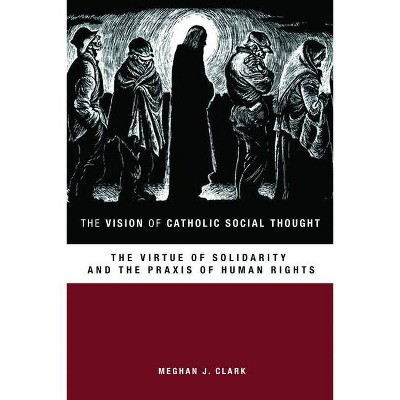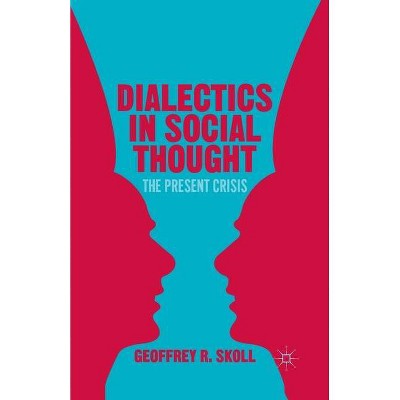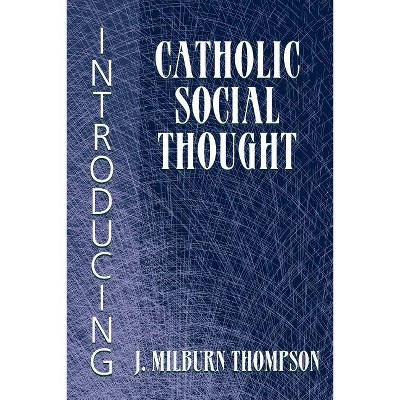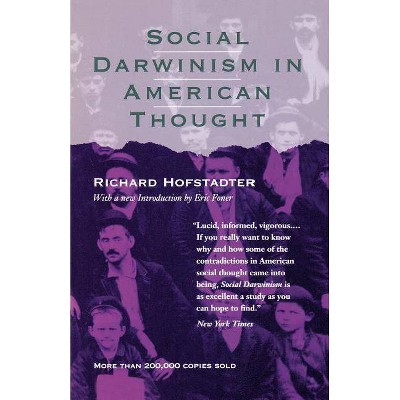Planetary Social Thought - by Nigel Clark & Bronislaw Szerszynski (Paperback)
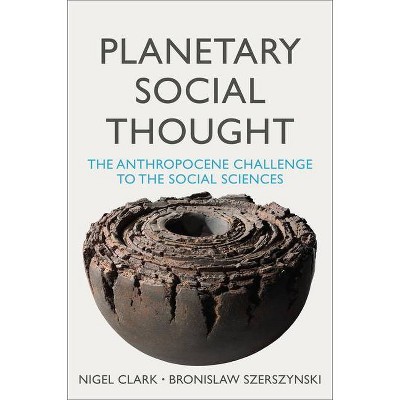
Similar Products
Products of same category from the store
AllProduct info
<p/><br></br><p><b> About the Book </b></p></br></br>"Timely and much-needed theory of humanity's relation to the planet"--<p/><br></br><p><b> Book Synopsis </b></p></br></br><p>The Anthropocene has emerged as perhaps <i>the</i> scientific concept of the new millennium. Going further than earlier conceptions of the human-environment relationship, Anthropocene science proposes that human activity is tipping the whole Earth system into a new state, with unpredictable consequences. Social life has become a central ingredient in the dynamics of the planet itself. </p> <p>How should the social sciences respond to the opportunities and challenges posed by this development? In this innovative book, Clark and Szerszynski argue that social thinkers need to revise their own presuppositions about the social: to understand it as the product of a dynamic planet, self-organizing over deep time. They outline 'planetary social thought' a transdisciplinary way of thinking social life with and through the Earth. Using a range of case studies, they show how familiar social processes can be radically recast when looked at through a planetary lens, revealing how the world-transforming powers of human social life have always depended on the forging of relations with the inhuman potentialities of our home planet.</p> <p>Presenting a social theory of the planetary, this book will be essential reading for students and scholars interested in humanity's relation to the changing Earth.</p><p/><br></br><p><b> Review Quotes </b></p></br></br><br>"We hear a lot about the global environmental crisis, but do we have the ideas to get us out of the problems we have collectively created? <i>Planetary Social Thought</i> challenges social scientists and humanists to rebuild their intellectual house so as to help humanity think anew about a world to come."<br /><b>Noel Castree, University of Manchester<br /></b> <p>"<i>Planetary Social Thought</i> is a wide-ranging exploration of how closely intertwined, and how mutually sensitive, are the human and geological realms. This vivid and passionately argued book can help illuminate these new, emergent landscapes, and chart a path through them."<br /><b>Jan Zalasiewicz, University of Leicester</b></p> <p>"This book offers a terra-forming analysis, strongly willed to make us think. Using more than one analytic perspective at once--geos and bios and what exceeds both--its scope ranges topologically from the planet to the microbe. <i>Planetary Social Thought</i> is a feat of writing--and it is not afraid of animisms!"<br /><b>Marisol de la Cadena, University of California, Davis</b></p> <p>"<i>Planetary Social Thought</i> takes the challenge of the Anthropocene to a new level. Rather than simply adopting a social science view of the planet, the authors allow planetary forces to redefine the very sense of the social, and allow the planet to take its place in the contested space of social entities. Clark and Szerszynski have redefined what "thought" will be for the twenty-first century."<br /><b>Claire Colebrook, Pennsylvania State University<br /><br /></b>"A deeply interdisciplinary text that should spark a wide range of interpretive analytical possibilities. [...] For the proliferating courses and lectures on the Anthropocene specifically, one sees this as becoming standard reading."<br /><b><i>New Global Studies</i></b></p><br><p/><br></br><p><b> About the Author </b></p></br></br><p><b>Nigel Clark</b> is Professor of Human Geography at Lancaster University.</p> <p><b>Bronislaw Szerszynski</b> is Professor of Sociology at Lancaster University.</p>
Price History
Price Archive shows prices from various stores, lets you see history and find the cheapest. There is no actual sale on the website. For all support, inquiry and suggestion messages communication@pricearchive.us
